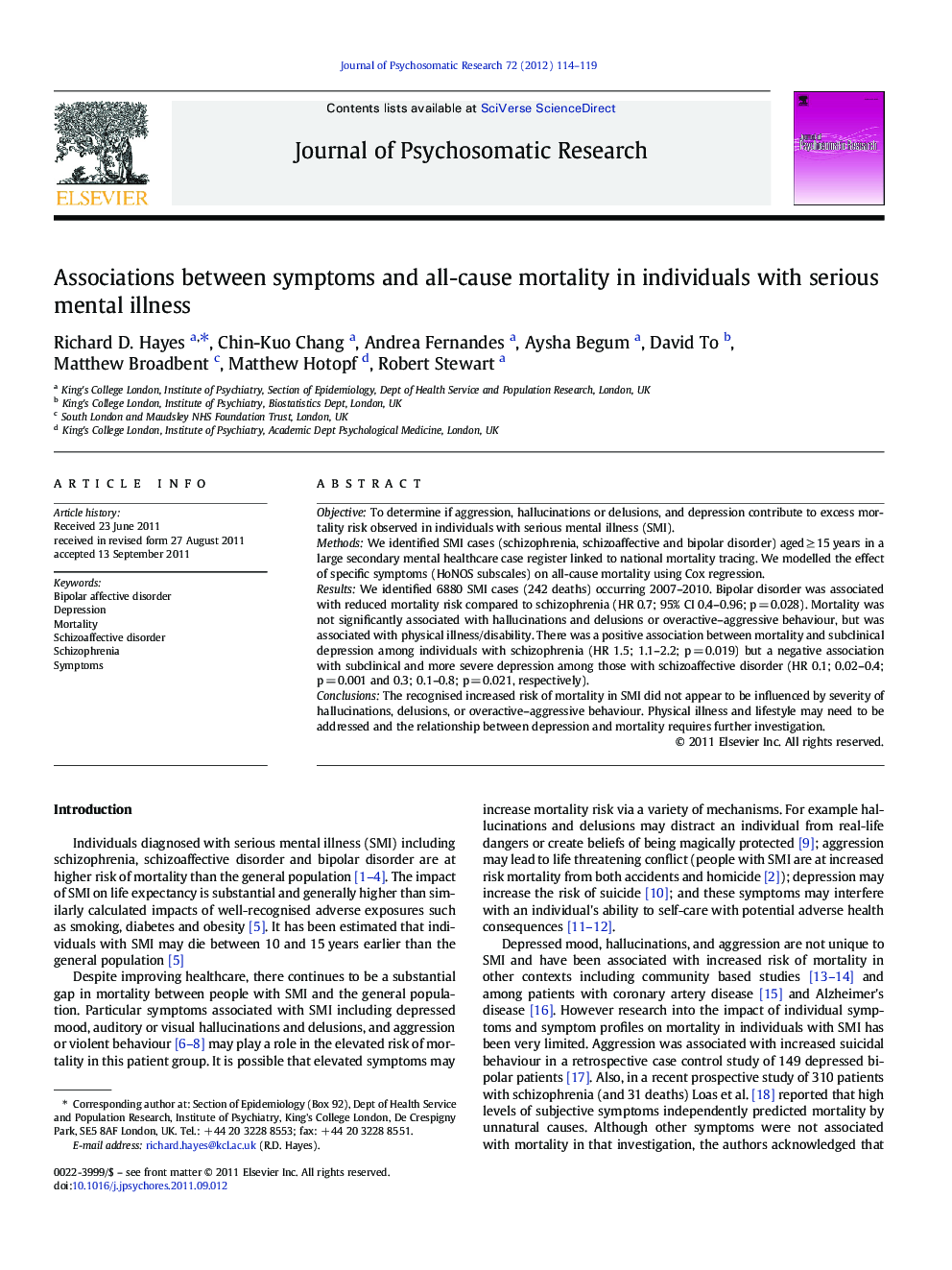| Article ID | Journal | Published Year | Pages | File Type |
|---|---|---|---|---|
| 949735 | Journal of Psychosomatic Research | 2012 | 6 Pages |
ObjectiveTo determine if aggression, hallucinations or delusions, and depression contribute to excess mortality risk observed in individuals with serious mental illness (SMI).MethodsWe identified SMI cases (schizophrenia, schizoaffective and bipolar disorder) aged ≥ 15 years in a large secondary mental healthcare case register linked to national mortality tracing. We modelled the effect of specific symptoms (HoNOS subscales) on all-cause mortality using Cox regression.ResultsWe identified 6880 SMI cases (242 deaths) occurring 2007–2010. Bipolar disorder was associated with reduced mortality risk compared to schizophrenia (HR 0.7; 95% CI 0.4–0.96; p = 0.028). Mortality was not significantly associated with hallucinations and delusions or overactive–aggressive behaviour, but was associated with physical illness/disability. There was a positive association between mortality and subclinical depression among individuals with schizophrenia (HR 1.5; 1.1–2.2; p = 0.019) but a negative association with subclinical and more severe depression among those with schizoaffective disorder (HR 0.1; 0.02–0.4; p = 0.001 and 0.3; 0.1–0.8; p = 0.021, respectively).ConclusionsThe recognised increased risk of mortality in SMI did not appear to be influenced by severity of hallucinations, delusions, or overactive–aggressive behaviour. Physical illness and lifestyle may need to be addressed and the relationship between depression and mortality requires further investigation.
